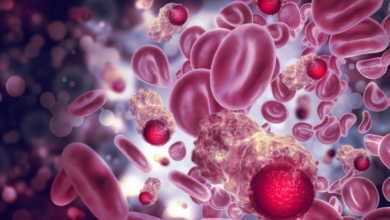Targeted Therapy

What is Targeted Therapy?
Targeted therapy is a type of treatment that uses drugs designed to specifically target and attack cancer cells without harming healthy cells. Unlike traditional treatments like chemotherapy and radiation, which can damage both cancer cells and healthy cells, targeted therapy aims to be more selective and reduce side effects.
Why Targeted Therapy is required?
· Precision medicine: Targeted therapy is a key component of personalized medicine, which aims to tailor treatments to the individual patient based on their genetic makeup.
· Improved efficacy: By targeting specific molecular pathways involved in cancer growth, targeted therapy can be more effective in treating certain types of cancer.
· Reduced side effects: Targeted therapy often has fewer side effects than traditional treatments, as it doesn’t damage healthy cells as much.
Which are the method of Targeted Therapy?
Targeted therapy can involve various approaches, including:
- Monoclonal antibodies: These are laboratory-produced proteins that can bind to specific targets on cancer cells, triggering their destruction.
- Tyrosine kinase inhibitors: These drugs block the activity of enzymes called tyrosine kinases, which are involved in cancer cell growth and survival.
- Small molecule inhibitors: These drugs target specific proteins or enzymes within cancer cells, interfering with their function.
Who should go for Targeted Therapy?
Targeted therapy is typically considered for patients with specific types of cancer that have been identified as suitable for this approach. A healthcare provider will assess a patient’s eligibility based on factors such as:
- Cancer type: Certain types of cancer are more likely to respond to targeted therapy.
- Genetic profile: The specific genetic mutations present in the cancer cells can determine whether they are susceptible to targeted therapy.
- Disease stage: The stage of the cancer may influence the suitability of targeted therapy.
What are the results of Targeted Therapy?
Targeted therapy can have varying results depending on the individual patient and the specific type of cancer. In some cases, targeted therapy can lead to significant tumor shrinkage or even complete remission. However, it’s important to note that not all cancers respond to targeted therapy.
What are the components of Targeted Therapy?
Targeted therapy typically involves:
- Genetic testing: Identifying the specific genetic mutations in the cancer cells to determine if they are suitable for targeted therapy.
- Drug selection: Choosing the appropriate targeted therapy drug based on the identified genetic mutations.
- Treatment administration: The drug is administered according to a prescribed schedule.
- Monitoring: The patient’s response to treatment is closely monitored for signs of effectiveness or side effects.





